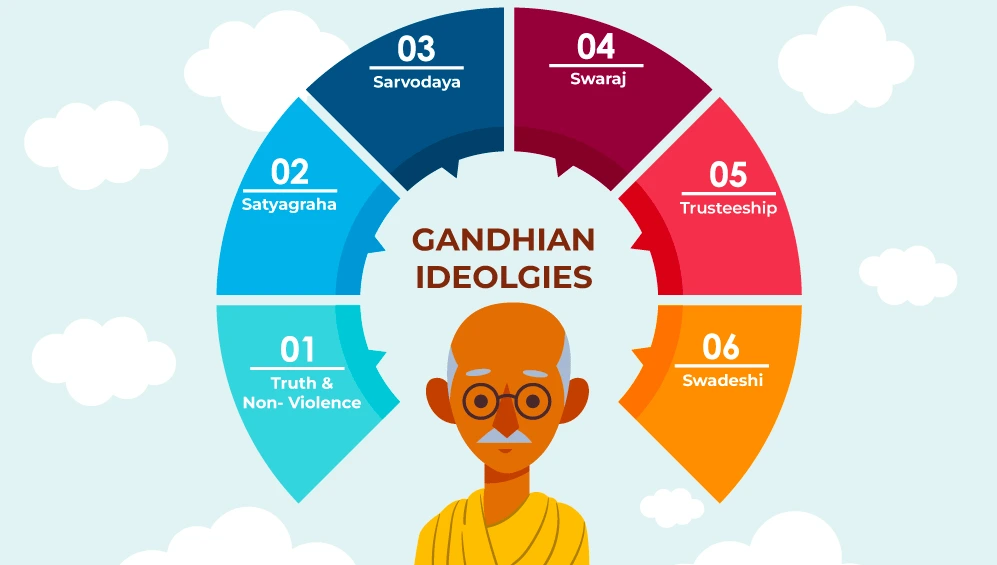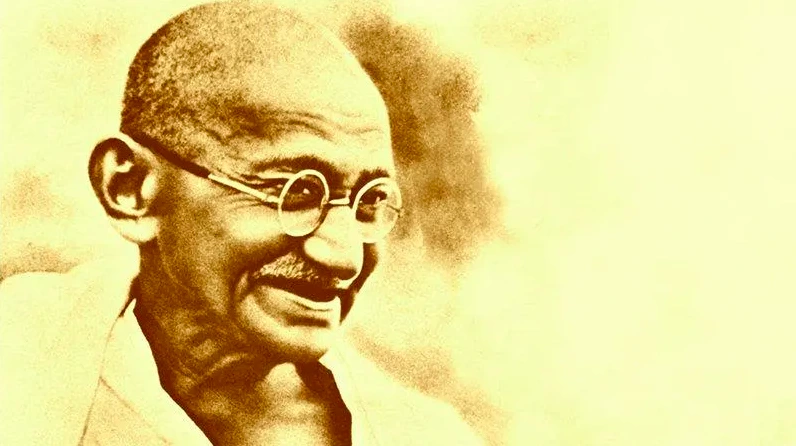The core of Mahatma Gandhi’s life and the basis of his program for social and political change was his philosophy of nonviolence, or “Ahimsa” in Sanskrit. As a result, this deeply embedded ethical principle is founded on the conviction that violence is morally and spiritually unacceptable. Gandhi was a fervent supporter of non-cooperation and nonviolent protest as effective strategies for bringing about societal change. Additionally, he saw Ahimsa as a way of life that promotes empathy and mutual respect as the main pillars of human relations rather than just a strategy.
The Philosophy of Non-Violence: A Glimpse into Gandhi’s Ideals
Gandhi’s nonviolence philosophy, or Ahimsa, gives an in-depth knowledge of his lifestyle and society development method.
Gandhi’s philosophy
The following are the major concepts that have created his excellent legacy:
Non-Violence (Ahimsa): Gandhi taught to avoid harm to oneself or others, either physical, mental, or emotional. He was convinced that violence simply serves to create a cycle of hatred and misery.
Truth (Satya): Truth, for Gandhi, was a vital part of nonviolence, Therefore to define his ideology of nonviolent resistance, he created the word “Satyagraha,” a mix of “Satya” (truth) and “Aagraha” (insistence).
Resistance to Injustice: In the face of injustice, oppression, and biases, Gandhi stood for nonviolent resistance.
Civil Disobedience: Gandhi supported rejecting following unjust laws or orders while openly containing the legal consequences of one’s conduct.

Non-Cooperation: By withdrawing cooperation from oppressive systems and institutions, Gandhi believed their power could be diminished.
Constructive Program: Gandhi emphasized the importance of taking constructive measures to address societal issues such as poverty and discrimination.
Reconciliation and Forgiveness: Instead of seeking revenge or retaliation, Gandhi advocated for reconciliation and forgiveness.
Interfaith Harmony: Gandhi stressed religious tolerance and worked towards fostering interfaith harmony.
Personal Transformation: Gandhi’s philosophy called for significant personal transformation, including fostering self-discipline and overcoming inner violence.
Global Impact: Gandhi’s dedication to non-violence had a profound influence on civil rights movements, peace initiatives, and leaders worldwide.
Gandhi’s nonviolent dedication was crucial in India’s fight for freedom from British colonial domination. His idea has continued to influence social and political movements all across the world.
Gandhi’s Wisdom: A Timeless Compass for Our Modern World”
Mahatma Gandhi’s teachings continue to provide profound insights for navigating the challenges of today .

Principles of Gandhi
Highlighting the timeless relevance of his principles:
Resolving Conflicts Peacefully: In a world often filled with strife, Indeed Gandhi’s principle of non-violence offers a powerful alternative for settling disputes.
Championing Social Justice: In order to address modern problems like inequality and discrimination, Gandhi’s unwavering dedication to social justice is essential.
Living Sustainably: Gandhi’s emphasis on simplicity and independence supports responsible consumption and sustainable living, aligning with the current environmental movement.
Defending Human Rights: Gandhi’s philosophy of non-violence and strategy of civil disobedience serve as a roadmap for peaceful activism in defense of human rights.
Political Activism: The methods of civil disobedience and non-cooperation that Gandhi employed continue to echo in today’s political movements.
Promoting Interfaith Dialogue: Amidst religious tensions, However, Gandhi’s dedication to interfaith harmony remains relevant.
Fostering Personal Growth: Gandhi’s focus on self-discipline, and introspection, self-improvement holds invaluable lessons for personal development and overall well-being.
Embracing Global Responsibility: Gandhi’s teachings transcend national boundaries, fostering the idea of global citizenship and shared responsibility.
Conclusion: Unchanging Gandhi
As we are facing fresh problems, Gandhi’s non – violent teachings and unfaltering devotion to his principles continue to inspire us. However, His wisdom is a beacon, reminding us of the transformative potential of peace, compassion, and mutual respect in building a better society. Future generations will benefit from his timeless wisdom thanks to his lasting legacy.


i searched alot about Gandhi ji but you explained very differently and in a good manner.Thankyou for giving us knowledgeble things.